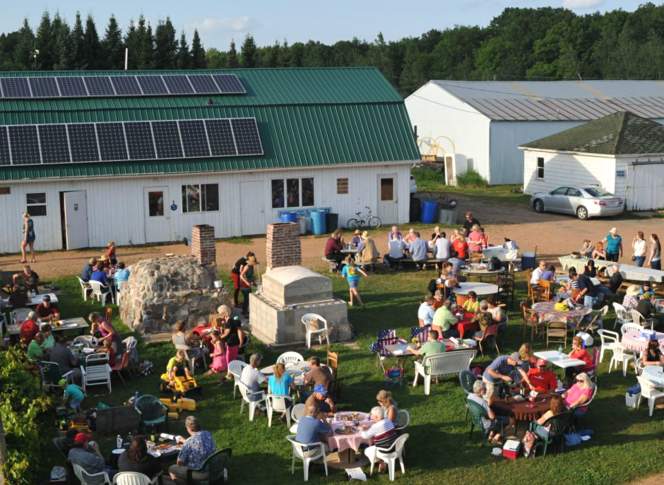Exploring The Value-Added Business Strategy Of Pizza Farms
The rising popularity of "pizza farms" may seem like just another quaint foodie trend, but there's business sense behind the idea.
September 21, 2017

Pizza farm at Stoney Acres Farms in Athens

The rising popularity of “pizza farms” may seem like just another quaint foodie trend, but there’s business sense behind the idea. The basic concept, which originated in Wisconsin, is that small farmers can make pizzas with ingredients grown on their lands or sourced nearby, and bake them right there for sale to visitors. Along with fostering a deeper connection between consumers and their food, a pizza farm offers a new source of income.
Farmers small and large frequently have to look for new markets and find opportunities with new products. For small farmers who rely on direct-to-consumer approaches like community-supported agriculture plans and vending at farmers’ markets, there’s an obvious appeal in adding value to their produce, meat and/or cheese by setting up a pizza farm.
Tony Schultz of Stoney Acres Farm near Wausau was featured in a Wisconsin People & Ideas cover story, republished by WisContext, that examined the pizza farm phenomenon’s roots and growth in Wisconsin. He discussed both the business and the ingredients involved in a Sept. 5, 2017 interviewon Wisconsin Public Radio’s Central Time.
For Schultz, hosting a pizza farm is one facet of helping run an organic operation that mostly focuses on growing vegetables. “If you’re calling it that, it’s a farm first,” he said.
 Passport
Passport











Follow Us